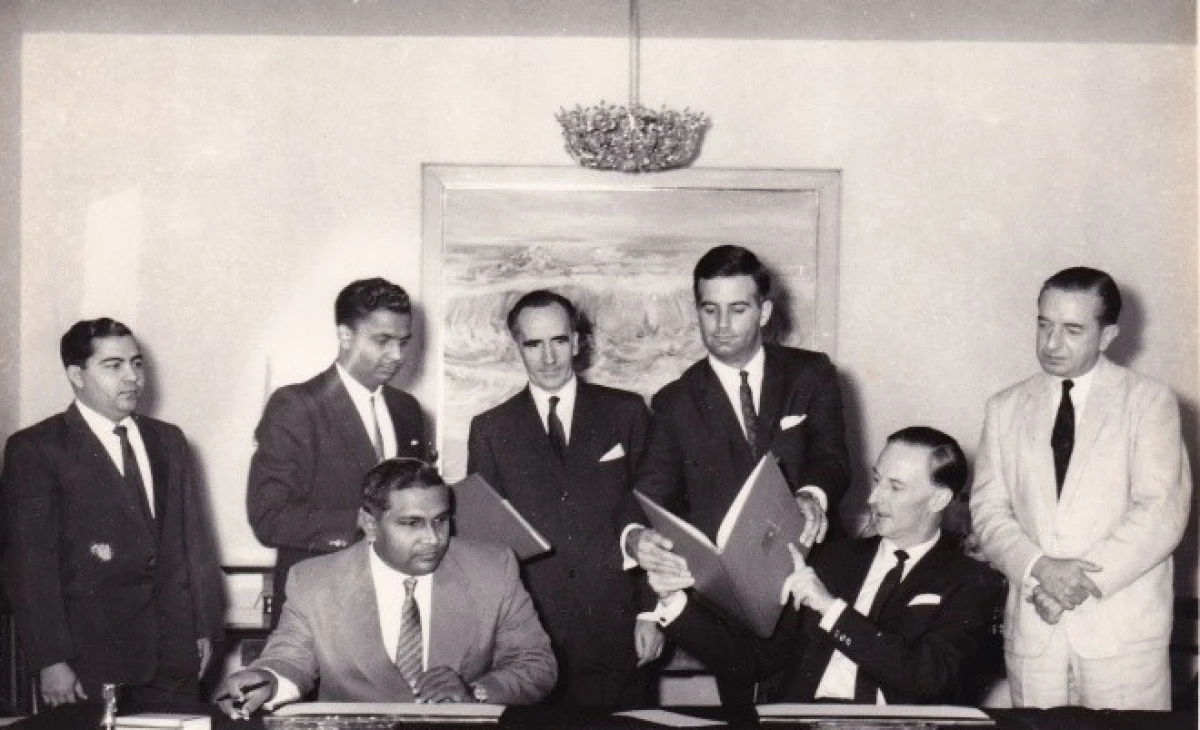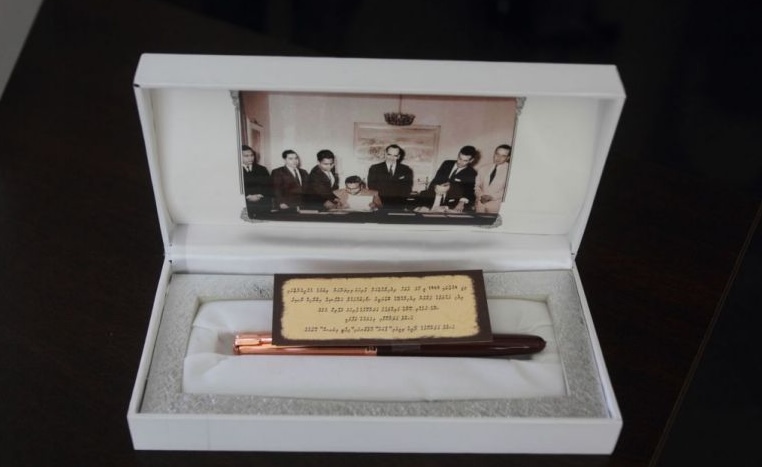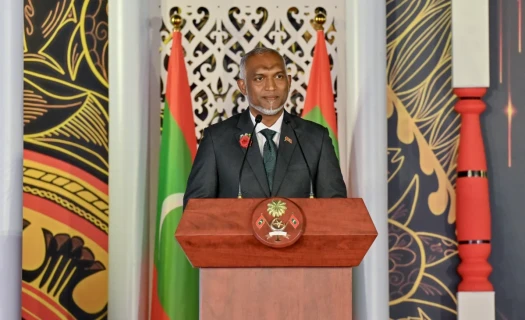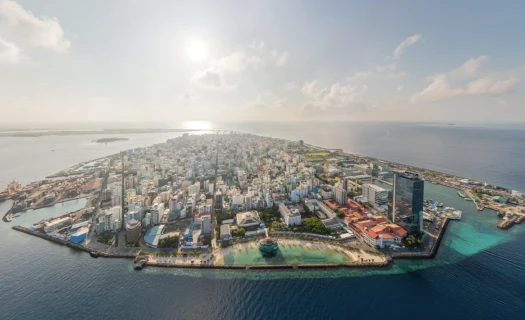Wed, 10 Sep 2025
|DHIVEHI
The legacy of independence written by a fountain pen
26 Jul 2025
|

Former President Ibrahim Nasir signs the Maldives’ Independence Agreement on 26 July 1965, Parker 51 in hand.
When we think back to the Maldives gaining independence 60 years ago, the name that often comes to mind is President Ibrahim Nasir. His leadership was instrumental in steering the country toward sovereignty. Yet, tucked quietly within that historic moment was an object few would think twice about: a pen.
It looked ordinary enough at first glance. Just a pen. Nothing remarkable. This particular writing tool, a 1/10 inch 12-carat rolled-gold Parker 51, held a legacy far greater than its size.
It is believed that President Nasir owned the pen and likely acquired it in Malé or nearby Sri Lanka. This was no easy feat, considering the cost and rarity of the Parker 51 series at the time. Even then, it would have been considered something special. President Nasir was not the only one to leave his mark with it.
In 1972, Queen Elizabeth II visited the Maldives as part of her tour through South-East Asia. At Muliaage, she signed the guest book using the Parker 51. Although a more expensive pen was offered, the late Queen was known to favour Parker 51 pens and chose to use it instead.
Another historic figure also held the same pen. Sirimavo Bandaranaike, the first female prime minister of Sri Lanka and the world, used it during a visit to Malé. Like the Queen, she chose to write with the Parker 51.

The Parker 51 used to sign Maldives' Independence Agreement
By then, the pen had already played its most important role. It had been the instrument that signed Maldivian independence into being.
After the ceremony, President Nasir handed the pen to Abdul Sattar Moosa Didi. At the time, Sattar was at the Representative Office of the Maldives in Colombo, serving as the country’s representative in Ceylon. Abdul Sattar believed that it was a token of recognition for his role in securing the country’s independence.
Abdul Sattar was only 29 when he led the negotiations that ultimately resulted in the Maldives gaining independence. The process spanned two years, during which Sattar regularly transmitted updates to Nasir via wireless communication from Colombo.
In interviews, Abdul Sattar had expressed his wish for the pen to remain in his family. He had declined to part with it or donate it to an institution.
As the Maldives commemorates 60 years of independence, the story of this pen stands as a quiet reminder of the figures who shaped the nation and the object that helped sign its future into existence.


Popular News







